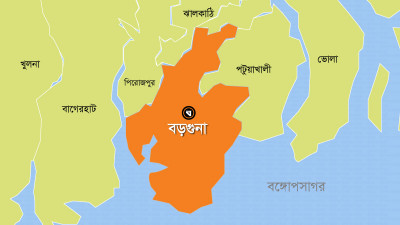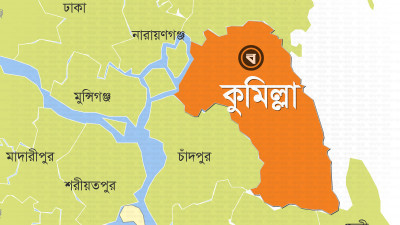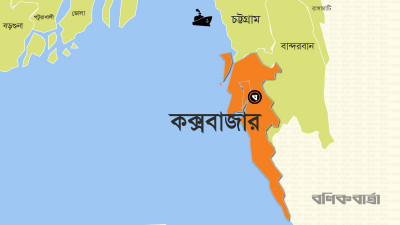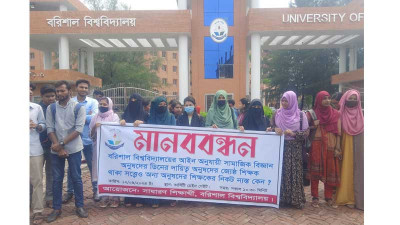 Photo: Bonik Barta
Photo: Bonik Barta The Awami League's victory in the December 2008 election
was largely attributed to the promise of a Digital Bangladesh. This ambitious
vision aims to make every sector of the country technology-dependent and
digitally transformed by 2021. However, the reality of the situation is far
from this promise. The Ministry of Information and Communication Technology
(ICT) initiated a series of projects starting in 2010, but the results have been
underwhelming. In December 2022, the then-Prime Minister Sheikh Hasina
introduced the concept of 'Smart Bangladesh,' further raising expectations.
This new slogan promised the digital transformation of all services and mediums
by 2041, the creation of an inclusive society, and developing a
business-friendly environment. However, the outcomes of the subsequent projects
have not lived up to these promises.
Overall, from 2010 until their removal from power, the
Awami League government launched projects worth nearly BDT 290 billion through
the ICT department. However, most of these initiatives have not been
successful. The majority of the expenditure on these projects went into
infrastructure development. Yet, despite such significant spending, the
projects failed to attract entrepreneurs. Additionally, several projects were
undertaken to develop skilled workers through training, but these efforts also
fell short, as trainees were not successfully integrated into the ICT industry
afterward.
Experts are talking about the projects taken by the
Bangladesh Hi-Tech Park Authority as a prominent example of fruitless
investment for developing infrastructure in the information technology sector.
Hi-Tech Park, IT Park, Software Technology Park, IT Training and Incubation
Center, IT Business Incubator Center, Frontier Technology Institute, etc.
Although these activities were carried out across the country to develop
hi-tech industries, they did not attract investment as expected. Business
activities in the technology sector have been conducted at Bangabandhu Hi-Tech
City in Kaliakore, Gazipur, for several years. Besides, few companies have
started small-scale production activities in the hi-tech parks built in Sylhet
and Rajshahi. Very little foreign investment has come into these parks.
According to the Hi-Tech Park Authority, the company has
completed five projects so far, with a total cost of BDT 7.88 billion. Ten more
projects are ongoing, with a cost estimated at BDT 71.30 billion.
Industry insiders say no IT industry owner or employee is
interested in going to Hi-Tech parks. Some institutions went initially, but
they returned later due to various crises. Although it was originally called a
Hi-Tech park, the technology-related workers do not want to go there because the
necessary ecosystem for living has not been developed around these
infrastructures.
Industry insiders stress the crucial need for better
planning and assessment of future projects. They emphasize that investors are
encouraged if the business model can show that there will be demand in the next
20 years. But if a product becomes useless after five years, businessmen don't
want to invest. Past government initiatives have not shown any model to ensure
business growth. On the one hand, we are lagging behind in infrastructure
development; on the other hand, mistakes have been made in planning. There is
no plan to employ educated graduates in government projects. Those working in
this sector are not able to acquire proper skills. This is due to a lack of
government planning.
Between 2015 and 2022, the then-government spent over BDT
130 billion on various projects to establish digital literacy institutions,
including Sheikh Russel Digital Labs and Sheikh Kamal IT Training and
Incubation Centers. Some of these projects have already been inaugurated.
However, a field inspection revealed that equipment at various inaugurated
institutions had been left neglected and deteriorated. According to a report
from the Bangladesh Bureau of Education Information and Statistics (BANBEIS),
while the teacher-student ratio is close to the ideal standard, there is a
severe shortage of teachers in crucial subjects like Information and
Communication Technology (ICT). Out of 11.33 million students in ICT, there are
only 14,712 teachers, resulting in one teacher for every 689 students.
Education experts say that despite significant government
investment in infrastructure development and training in the ICT sector,
students have not benefited from these initiatives. In particular, students in
rural and semi-rural areas who have access to IT labs find that these labs are
closed throughout the year. Due to the lack of teachers, the labs become
unusable. As a result, students face learning gaps, affecting their outcomes.
Some students failing at the secondary level are failing in ICT subjects.
Among the government's major projects is the expansion of
digital connectivity to rural areas, including the extension of fiber optic
networks. The government has undertaken several initiatives to expand the
network infrastructure, including Connected Bangladesh, the Digital
Connectivity Establishment, and the National ICT Infrastructure Development
(Info Government Phase I, II, and III). The government has made substantial
investments in these projects. However, residents of rural and remote areas
have not yet benefited from these improvements.
AKM Fahim Mashroor, CEO and founder of bdjobs.com and an
ICT expert said, "Various projects have been undertaken in the name of
Digital Bangladesh and Smart Bangladesh. Corruption and nepotism have occurred
with these projects funded by taxpayers' money. The general public has not
benefited from them. Many projects intended for the industry have also failed
to benefit industry people. There is a project called Info Government-3, which
was supposed to deliver digital and broadband connectivity to rural areas.
However, people in rural areas are still dependent on mobile networks."
He said, "Although various training initiatives have
been taken at different times, the industry does not get trained individuals.
It is not ensured where the allocated funds for training go or if the training
is conducted effectively. We cannot find skilled people for the industry. Many
apps have also been created, but these apps have no functionality. Ordinary
people cannot use these apps."
According to two ministry officials, previous ministers
and state ministers in the Ministry of Information and Communication Technology
and the Ministry of Posts and Telecommunications operated their activities
according to their preferences. Throughout all stages of the projects, from
tendering to implementation, a leader from the Jubo League exerted influence.
They would create various projects according to their own whims. The potential
of these projects was never assessed.
One notable example is the project titled "Digital
Government and Economy Strengthening." This project is being implemented
by the ICT Division in collaboration with the World Bank and the Bangladesh
government. It aims to provide training in 22 technology-related subjects to
20,000 IT graduates and emerging talents. Additionally, it includes training to
make 80,000 graduates employment-ready, the development of a national job
portal, establishing a Smart Leadership Academy, policy formulation, and
increasing technology sector export earnings to 5 billion dollars by 2025. The
project also involves some infrastructure development. The total expenditure
for completing these activities is estimated at BDT 25.41 billion. The project
is still ongoing, but there are doubts among stakeholders about whether its
objectives will be achieved.
When asked, Dr. Md Hadiuzzaman, a professor at Bangladesh
University of Engineering and Technology (BUET), told Bonik Barta,
"Training should involve knowledge transfer or the exchange of knowledge.
If the training lacks practical application, it cannot be sustainable. A
significant portion of the training provided here results in trainees not
applying their skills in their work. In many cases, senior officials take the
training and then are transferred the next day, rendering the training
ineffective. To address this, not only should trainees be made productive, but
there should also be policy decisions on how these trainings will benefit the
public, how much business success they will achieve, and their export
potential. Ongoing projects need to be reviewed and evaluated
accordingly."
He said, "Our policymakers are most interested in
investing in the infrastructure sector. Because building infrastructure requires
enormous investment, there is scope for looting. We lacked long-term planning
in these sectors. It is a colossal waste of public money. Many projects have
been taken up with foreign aid, and the burden of this debt has to be borne by
the people. Now, starting with fresh planning, manpower has to be prepared for
sustainability.
One of the projects undertaken by the government is Joy
Digital Service Employment and Training Center (D-Set). At this center in
Panchagarh, training for various courses including basic computer, freelancing
was organized every three months, but currently it is locked. Its activities
have been closed for a long time due to lack of entrepreneurs.
To improve literacy skills, training has been provided
through projects such as education online, information technology through
research and development, rate power, learning and earning development, etc.
BDT 3.3 billion project was taken up for skill
development of mobile games and applications. More than five hundred mobile
applications have been developed under the project, but these applications have
not been updated, and people have not benefited from it.
When asked, Nahid Islam, the Interim Government's Advisor
on Posts, Telecommunications, and Information Technology, told Bonik Barta, "The
previous government undertook unnecessary projects using taxpayers' money. We
have observed that in many cases, the feasibility of these projects was not
even assessed. These projects were initiated to benefit party loyalists through
political favoritism. We will review and assess the projects currently underway
to build a new Bangladesh and strengthen the institutions. We will not allow
the people's hard-earned tax money to be wasted."






